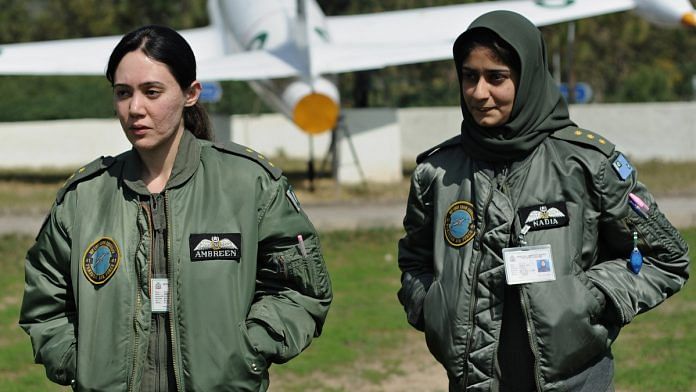A study suggests a growing “generational divide” between Pakistani senior officers and students in their threat perception.
At this crucial juncture when India is trying to figure out how to deal with Pakistan’s new PM Imran Khan and his relationship with the army, a new study throws up interesting findings on how Pakistani officers view India.
Young Pakistani officers don’t consider India as much a threat as their predecessors. For them, Pakistan-focused militant groups constitute the biggest security threat, finds the study ‘The Quetta Experience: A Study of Attitudes and Values Within the Pakistan Army’ published by Washington-based Wilson Center Asia Program.
The study, authored by David O. Smith (a retired colonel of US Army), covers a 37-year period from 1977 to 2014 and relies upon the experiences of US Army Foreign Area Officers (FAOs) who attended the Pakistan Army Command and Staff College at Quetta during this time.
Also read: Pakistan Army’s decades-long war on political parties continues
The Army Command and Staff College is Pakistan’s elite military academy whose top graduates go on to acquire senior positions in the army. The academy also hosts officers from various other countries and at any time has officers from three different generations of Pakistani army: senior officers, faculty (directing staff) and Pakistani students.
The study attempts to gauge the changes and their underlying drivers along the following parameters: demography and religiosity; perception of external threats and friendships; perception of internal threats; attitudes towards the state and its institutions; and attitudes towards nuclear issues.
Findings and implications
The study’s findings present both an optimistic and dismal picture for the future.
On the optimistic side, the study suggests that fears of “Islamisation” of the Pakistani army are exaggerated. Even though a small percentage of officers seem to have adopted “the more austere Deobandi version of Islam associated with radical militant groups”, they are mostly shunned and rarely perform well in the course. This reduces “the likelihood [that] they will be promoted to the grade of brigadier or receive a sensitive assignment”. Most top-performers who will rise to top positions continue to come from relatively secular backgrounds and are better educated than their peers.
The study suggests a growing “generational divide” between senior officers and students in their priority of threat perception. While earlier a “visceral and reflexive hatred of India seemed like a part of their identity as a Pakistani”, in recent times a number of students have started to see India as less of a threat than terrorist groups targeting Pakistan.
An FAO recounts a Pakistani student in 2012-13 as saying, “I don’t know why we hate them so much. We like their music, their movies, and our two languages are nearly the same.” Similarly, Pakistani officers who have served in UN peacekeeping operations label Indians as their “natural friends in such an international environment”. Although such statements are mostly expressed in private and the Staff College tries its best to indoctrinate students, the study speculates that “[f]uture generations of senior leaders may be more amenable to resolving contentious issues with India”.
Also read: Imran Khan’s govt in Pakistan prefers denying terrorism than learning lessons from 9/11
These sanguine forecasts notwithstanding, the study also presents several causes of concern. The US now finds itself “perceived as a direct military threat to Pakistan”. And while the present military leadership may continue to see value in the relationship for some time, sustaining the relationship in the future might be difficult.
It also presents one particularly gloomy scenario for India. It finds that there is rather little understanding of the strategic impact of the tactical use of nuclear weapons. A persistent belief remains that tactical use of nuclear weapons on Pakistani territory against Indian forces would not invite an Indian response. This increases the probability that Pakistan will “escalate quickly to the nuclear level to avoid defeat in any future war with India”.
But more than India or the US, the study’s findings present a bleak picture for Pakistan’s political stability due to the current attitudes and values espoused by its army officers. The students “support[ed] democracy and civilian governance in theory, but are harshly critical of civilian political institutions in practice”. They also express disdain for media, consider it “irresponsible”, “incendiary”, “lacking in objectivity”, and want it to be kept on a tight leash. The study proposes that such beliefs increase the possibility of an eventual return to military rule.
Also read: How ‘armed gangs’ have tried to influence elections in India, Pakistan and Sri Lanka
It also mentions the limitations of its findings. Army Command and Staff College admits officers from Pakistan’s officer corps through a competitive exam, and therefore, it represents the views of only 40 to 50 per cent of the officers.
You can read the full study by David O. Smith here. The study was published by Washington-based Wilson Center Asia Program.




We Hindus are not stupid, we know all Muslims in Pakistan have a stated goal of elimination of all non Muslims
Because 1971 was 47 years ago.